More than two decades after its foundation, the AK Party remains a political force to reckon with, and with the proper steps, can solidify its position as the longest-serving ruling party in the history of the Turkish republic.
“Nothing will ever be the same in Türkiye,” President Recep Tayyip Erdoğan famously pledged in his first public speech after the foundation of the Justice and Development Party (AK Party) in 2001. Twenty-four years on, the AK Party has changed many things, indeed, except its leader.
As it celebrates its 24th anniversary today, the party enjoys unprecedented success in Turkish politics: remaining in power uninterruptedly for more than two decades. This is quite a feat in a country where short-lived coalition governments have been a staple of the political landscape, and parties often lose public support as quickly as they gain a remarkable following.
These swift changes in the government and the slow decline of dominant parties can be attributed to the party’s initial rise to power. Yet, few can interpret the secret of the AK Party’s longstanding success in a country that only held its first genuinely democratic election in 1950 and witnessed blow after blow to genuine democracy in the following decades due to military coups.
Reasons behind decades-long victory
Some argue that it is Erdoğan’s charismatic leadership that has kept the AK Party a favorite among the electorate, and even claim that the party is nothing but a mere political entity, like the opposition’s underdogs, without Erdoğan. There is a grain of truth to this, as some of the party’s supporters might agree, but the factors pushing the public to the AK Party in both municipal and general elections are more nuanced than that.
One such factor is skillfully combining small-town politics or common populism with the embrace of an undecided electorate that is fed up with the narrow-minded, forced ideologies of the past. Instead of confining itself to luring an easy target like conservative Muslims with few options in right-wing and left-wing parties, the party chose the difficult path and sought to be a voice for the unheard. Instead of relying on the readily available vote of those disillusioned with yesterday’s parties, the AK Party went door-to-door with aggressive campaigning on the neighborhood level and never lost touch with ordinary citizens, unlike other parties, which shunned visits to places where they were not very popular among the electorate. It was aware that persuading a household started with convincing the women and the party’s women members, who went door to door, recruited more voters to a growing movement with this practical and straightforward approach. Certainly, well-established parties that lost touch with voters and did little to change this contributed to the party’s success, but hard work ultimately paid off.
Building upon the initial success is perhaps the most important factor cementing voter loyalty for the AK Party. The AK Party governments rarely lapsed into sloth after delivering initial promises to improve the country’s infrastructure and public services, from governance reforms to construction of new, modern roads, hospitals, schools, airports, etc. and in more than two decades, the party proved that “development” in its name is not randomly picked by its founders.
Another key to the party’s success is positioning itself in a place beyond orthodox leftist or right-wing political views that have shaped voters’ preferences in the past. Unlike its rivals, namely the Republican People’s Party (CHP), which alienated pious, nationalist voters for years by pursuing a so-called “secular” approach, the AK Party opened its doors to people of different views. Admittedly, it drew more people from conservative segments of society, but this also demonstrated how much these individuals had been ostracized from mainstream politics by parties of the past.
Recruiting supporters from a wide political spectrum, the party developed its own doctrine or ideology over time, which is perhaps most pronounced in the “Century of Türkiye” vision announced by Erdoğan prior to the centenary of the Republic of Türkiye. Time will tell whether this ideology, which is actually non-political in its nature, will endure. However, it is safe to say that AK Party supporters of today are a class of their own, drawing inspiration from the actions of exemplary leaders and statesmen of the past, from Adnan Menderes to Turgut Özal, from Mustafa Kemal Atatürk to Necmettin Erbakan. The “Century of Türkiye” is a vision of a new cause exclusive to the AK Party, but it goes beyond that. It is “Kızıl Elma,” or the “Red Apple” of the party, a seemingly impossible goal to make Türkiye a global power, or at least a global example in the international community, in many fields, from democracy to diplomacy and the economy. This faith in “dava” (the cause) that transcends day-to-day politics will undoubtedly enable the AK Party to last longer than others.
But the road to a long life in politics is not without obstacles. The AK Party has weathered many crises but came close to its first genuine loss in 2024 at municipal elections. Unprecedented losses in AK Party strongholds are interpreted by the party as “a lesson” by the electorate, apparently unsatisfied with the state of the economy and, in some cases, the performance of mayors. Opinion polls indicate that the party remains ahead of its closest rival, the CHP, but the gap is narrower than it was in the past. Is this a sign that the AK Party will suffer new losses? We will have to wait until the next elections in 2028 to see if this happens. With the correct approach, the party may retain its place in the pantheon of political forces that have shaped Türkiye’s history since the last years of the Ottoman Empire.
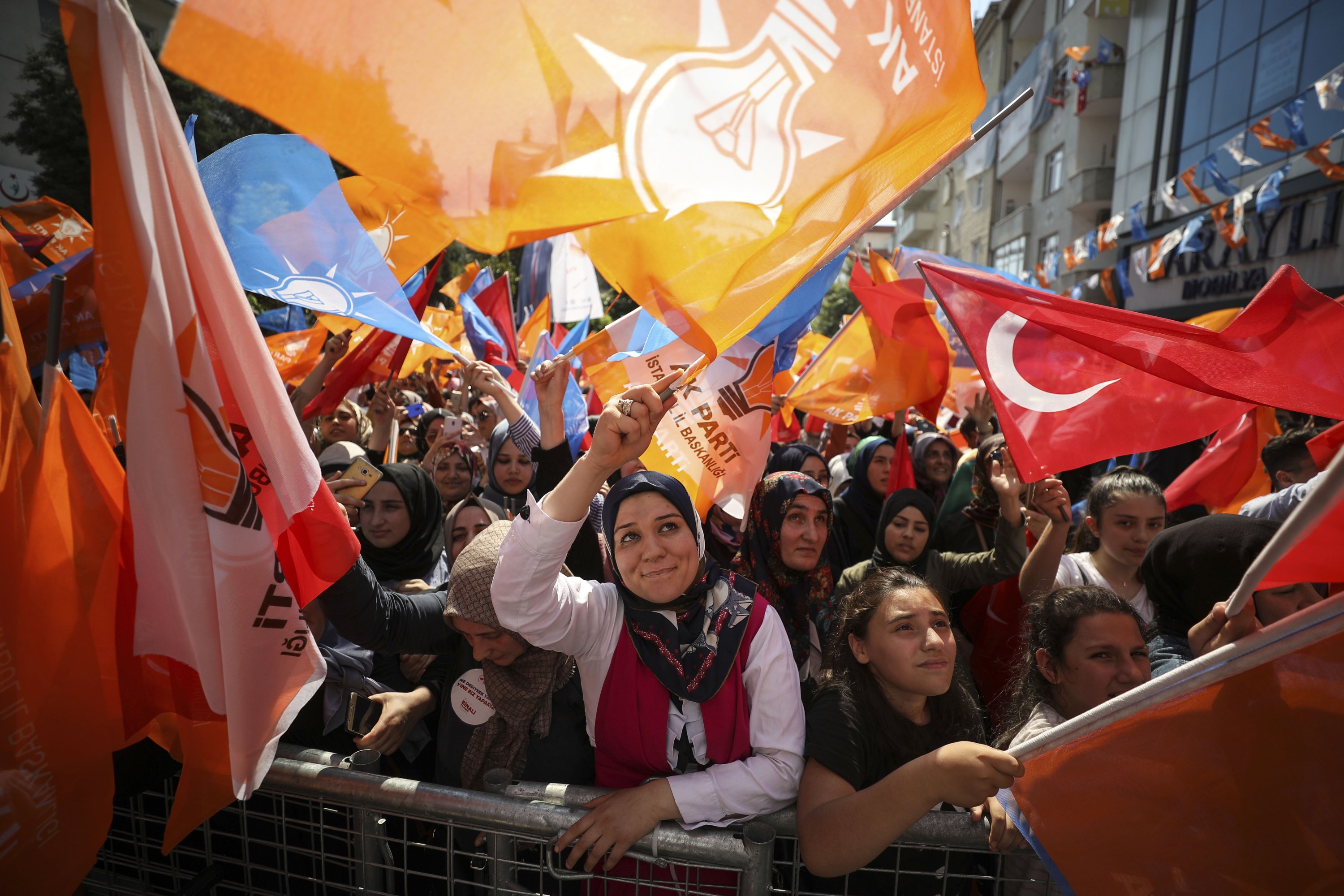
Future of AK Party
As is natural for such an enduring political movement, the party experienced splits, most notably with the departure of a group led by former Prime Minister Ahmet Davutoğlu. On the other hand, it found a new ally in the Nationalist Movement Party (MHP). Most recently, it bolstered its parliamentary majority with transfers from other parties. But the majority in Parliament does not always translate into success, and relying on transfers is not sustainable.
Having a fragmented opposition as the rival plays into the hands of the party, but it is a risky bet, as the six-party opposition bloc, which fielded a joint candidate in the 2023 elections, posed the first truly serious challenge against the party. The opposition enjoys a newfound popularity, riding on the success in municipal elections, though converting diehard AK Party supporters is a challenging task. The opposite is also true, especially in the case of the CHP, whose supporters seem worlds away from the grassroots of the AK Party. A new opposition alliance appears unlikely, as the CHP is more occupied with infighting and defending its mayors, who are tainted with corruption charges, than reaching out to other parties.
Still, the results of the municipal elections showed that the electorate, consciously or unconsciously, can decide to teach the AK Party another lesson if they feel disappointed, especially in the field of the economy. The government’s adherence to its current economic plan to lower inflation is crucial, but voters’ patience may wear thin faster than that of those in power. One advantage of the AK Party is having another three years before the next election. Addressing the issue of high living costs may not attract new supporters, but rather reinvigorate the trust of existing ones, especially in light of the narrowing gap between the AK Party and the CHP.
Speaking of new supporters, endearing itself to the youth is both a challenge and a blessing for the AK Party. The party’s past election campaigns tried this by focusing on life before and after the AK Party, but the opposition appears more skillful in luring young supporters with shiny, if not empty, promises of a brighter future without the AK Party. This is the downside of staying in power for so long, where new generations grow up without knowing any other party in power and tend to vote for others when they first attribute hardship to the government’s mistakes. Again, addressing the economic problems the youth face, from employment to housing costs, will help the party at least convert some young voters.

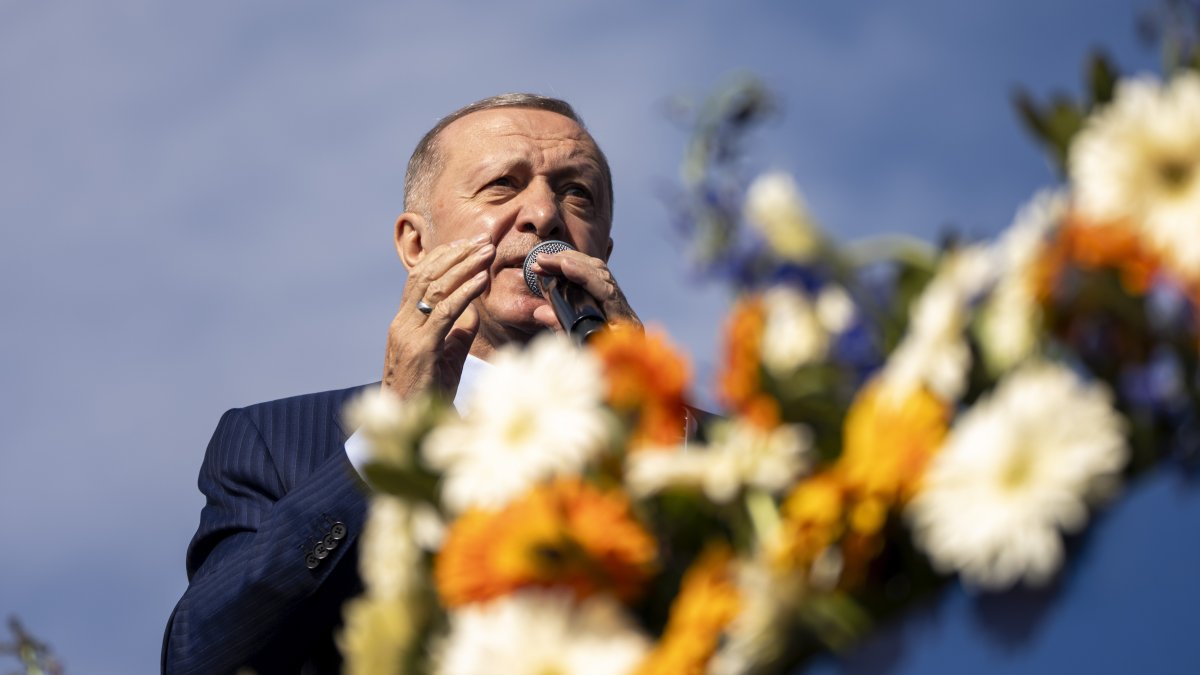
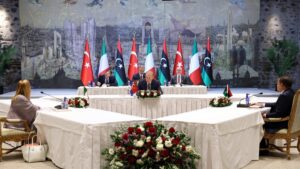


















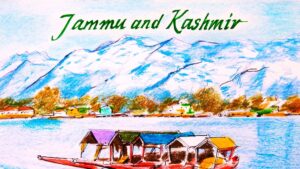

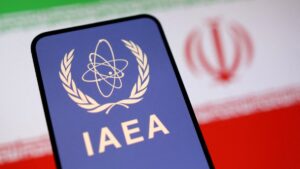























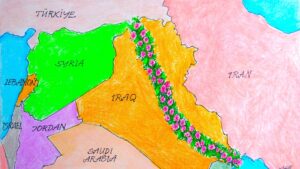




Be First to Comment